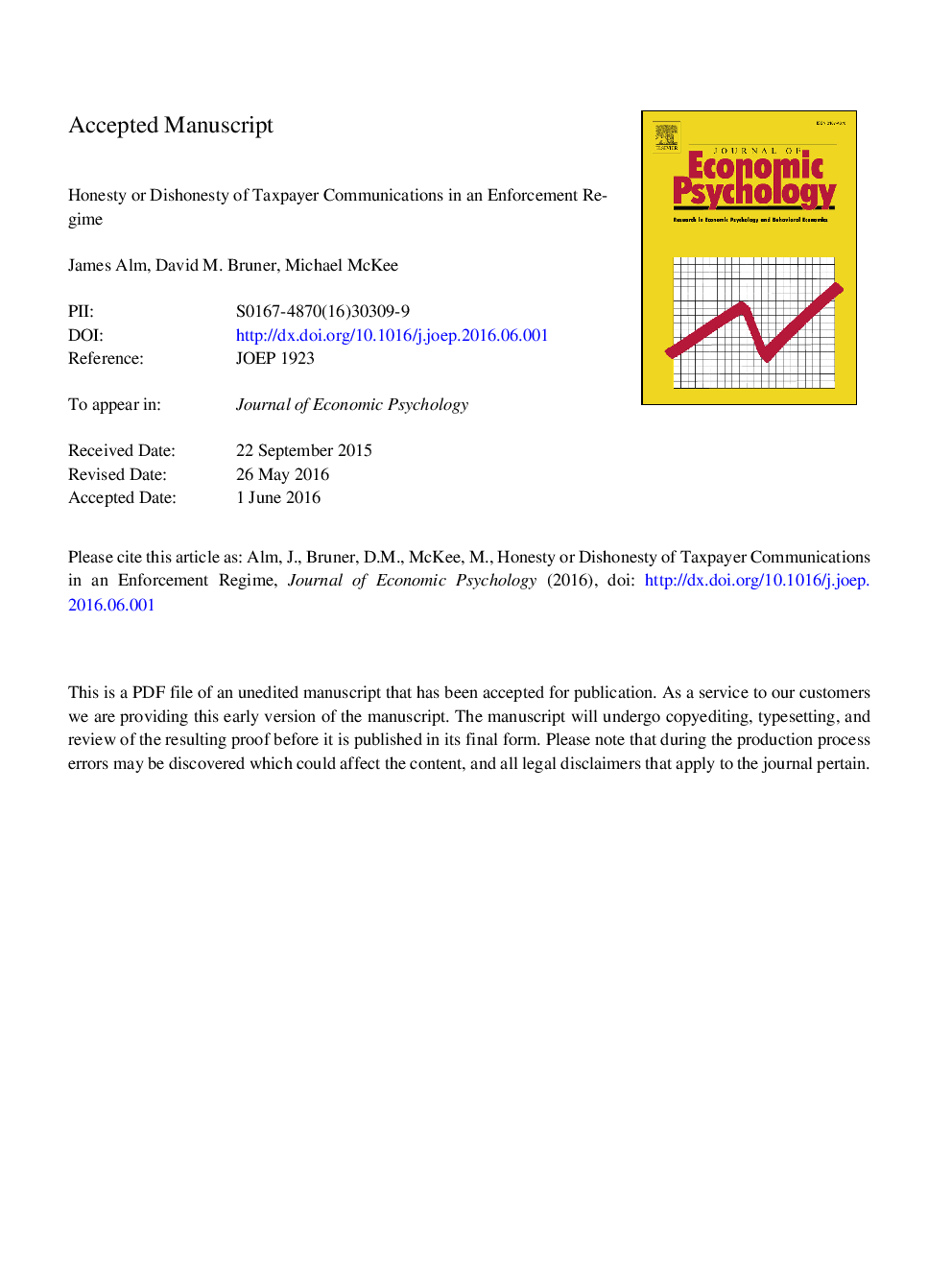| Article ID | Journal | Published Year | Pages | File Type |
|---|---|---|---|---|
| 7244212 | Journal of Economic Psychology | 2016 | 32 Pages |
Abstract
In many settings the true likelihood of capture when engaging in an illegal activity, such as tax evasion, is not well known to an individual. “Official” statements from the tax administration regarding enforcement effort provide some information. In addition, “informal”, or “unofficial”, communication among taxpayers can supplement these official announcements, but individuals do not know with certainty whether such unofficial information is honest (or accurate) versus dishonest (or inaccurate). We examine the truthfulness of an individual's revelation of unofficial information to other individuals, along with the factors that affect any revelation, focusing on the intrinsic motivations for revelations. Our experimental design allows us to examine the type and the honesty of messages that an individual chooses to send to other individuals regarding their own audit outcome and their own compliance behavior. Our results indicate that most individuals send accurate messages about their own audit outcomes and their own compliance behaviors. Nevertheless, many individuals are also systematically dishonest about being audited; that is, we observe a significant tendency for individuals to claim that they were audited when they were not. We also observe a strong interaction between individuals' audit outcomes and their compliance behaviors, so that individuals who engaged in tax evasion and who were audited were more truthful in their communications than those whose tax evasion went undetected.
Related Topics
Social Sciences and Humanities
Business, Management and Accounting
Marketing
Authors
James Alm, David M. Bruner, Michael McKee,
